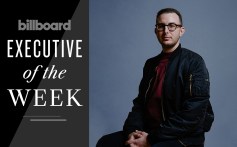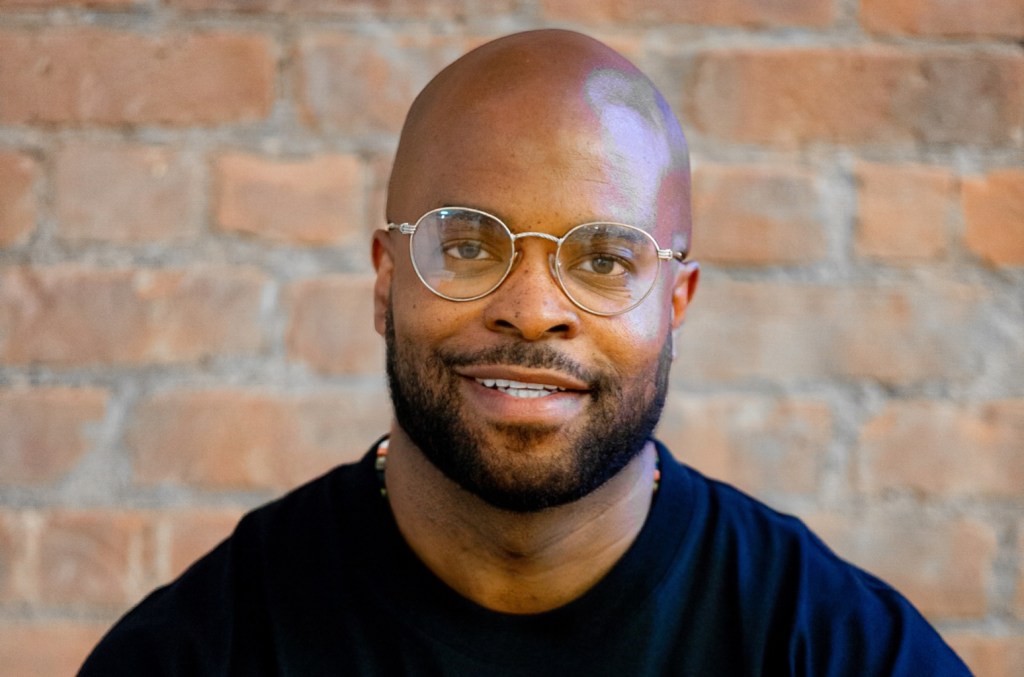Record Labels
Page: 3
Trending on Billboard
Sony Music announced Saturday (Nov. 2) that Vanessa Picken is stepping down as chair and CEO of Sony Music Australia and New Zealand, ending a three-year tenure marked by structural modernization, artist-first initiatives and industry-first milestones.
“It has been a privilege to lead such a dedicated and talented company, collaborating with so many inspiring artists and their teams,” Picken said in a statement. “Supporting their growth, creativity, and bold visions has been one of the most rewarding aspects of my role. With my term now complete, I feel this is the perfect time to embrace my next opportunity.”
Related
Picken was appointed in June 2022, becoming the first woman to lead the major label’s operations across both countries. She officially began in September 2022, succeeding former CEO Denis Handlin, who exited in 2021 following an external investigation into workplace culture. Her appointment was widely seen as a reset moment for the company.
Over the past three years, Picken spearheaded efforts to modernize the company’s internal operations and improve artist relations. Under her leadership, Sony Music ANZ invested in digital innovation, experiential brand opportunities and new licensing models, while placing increased emphasis on artist well-being and transparency.
“I am incredibly proud of what we have achieved together over the past three years, particularly during this transformative period for our Australia and New Zealand operations,” Picken continued. “We’ve modernized our organizational structure, enhanced our digital and marketing capabilities, and fueled new growth through experiential and licensing ventures. Throughout it all, we’ve placed a renewed focus on artist wellbeing and deepened their connection to the team.”
“As I move on from being the first woman to hold this role, I do so with great excitement for the future,” she added. “I’m confident I won’t be the last, and I hope that in the process, I’ve inspired others to follow their own paths.”
Rob Stringer, chairman of Sony Music Group, thanked Picken for her contributions in a statement to Billboard: “We extend our thanks to Vanessa for her time at Sony Music and for her commitment to guiding our artists’ careers and championing local creative talent. We wish her every success in the next chapter of her journey.”
No successor has been named, and Sony Music has not announced who will lead the company in the interim.
Trending on Billboard
Olivia Dean’s sophomore album The Art of Loving, released in late September, is an intimate portrait of matters of the heart, and the highs and lows of romance in your 20s. Now the world loves her back and U.K. industry insiders are blown away as a fresh outpouring of affection gives her a rare shot of breaking America.
Related
Released via Capitol Records U.K. in partnership with Island Records U.S., The Art of Loving recently peaked at No. 6 on the Billboard 200, and currently remains in the top 10. And this week, its breakout hit “Man I Need” continues to rise on the Hot 100 and is up to No. 8 — Dean’s first-ever Hot 100 top 10 hit — while two other tracks, “So Easy (To Fall In Love)” and “Nice to Each Other,” appear at No. 44 and No. 88, respectively.
Records have tumbled on the U.K’s Official Charts. On release week, The Art of Loving and “Man I Need” concurrently hit No. 1 on the Albums and Singles chart, with Dean becoming the first British female solo artist to achieve the feat since Adele in 2021. This week, Dean has broken a new U.K. chart record with four songs inside the top 10, the first time any female solo artist has achieved the feat and buoyed by her appearance on Sam Fender’s “Rein Me In.”
Dean is no overnight sensation. The BRIT School graduate first appeared as a backing singer with dance group Rudimental, and landed a record deal with AMF (a subsidiary of EMI) in 2019 for OK Love You Bye, her debut EP. Her debut album Messy (2023) scored a Mercury Prize nomination, and alongside an appearance on the BBC’s Sound Of poll the following year, she earned nominations in three categories at the BRIT Awards in 2024.
Now that steady build has exploded into potential global stardom. Next spring, the 26-year-old will headline six nights at London’s 20,000-capacity O2 Arena as part of her sold-out U.K. and Ireland tour, but the campaign is smartly positioned to break across the pond, too. She’s currently the lead support for Sabrina Carpenter’s ongoing arena tour, including five nights at New York’s Madison Square Garden this week. A performance on Saturday Night Live is scheduled for Nov. 15.
Now, with the campaign going from strength to strength, Tom Paul, managing director of Capitol Records U.K., earns the title of Billboard’s Executive of the Week. Here he discusses the canny A&R decisions that supported Dean’s artistry, why she stands out in a world “increasingly shaped by AI” and keeping her well-fed with her favorite snack: chocolate raisins.
Related
This week, Olivia Dean’s “Man I Need” became her first top 10 hit on the Billboard Hot 100, soaring to No. 8 in its ninth week on the chart. What key decisio did you make to help make that happen?
Partnering with Island U.S. in 2023 was absolutely key — that team is world-class. They completely understand and support Olivia’s artistry, and we’ve been working in lockstep since the release of Messy. We built an ambitious plan for The Art of Loving rollout in late 2024 and really stuck to it. “Man I Need” was quickly chosen as the focus single by Olivia and the team — and when she started performing it across her U.S. headline shows before release, the response was undeniable. You could feel it connecting in the room. Her being back in market now, supporting Sabrina Carpenter, has only amplified that momentum — and honestly, given the commercial and radio plans Island have put in place, it feels like this track still has plenty more room to grow.
Olivia released four EPs and her debut album, 2023’s Messy, before breaking through with The Art of Loving. How have you worked to build her career steadily through the years?
From the start, we’ve always focused on Olivia as an artist with longevity. We’ve been consistent with music releases since 2019, including live albums from the Jazz Café and Hammersmith Apollo, standout sync moments with Bridget Jones and Heartstopper, her work with brands such as Burberry and Adidas, and extensive global touring.
She’s one of the hardest-working artists I’ve ever seen — she’s travelled the world several times over, supported brilliantly by Nickie Owen and the Universal Music U.K. International team. Olivia knows exactly who she is, and we’re all completely aligned on her ambitions. The key is making smart decisions every day and avoiding shortcuts. She’s in this for the long run, and everything we do is built around that.
What specific decisions did the A&R team and Olivia make during the process of writing and recording The Art of Loving?
Willem Ward’s decision to turn an east London house into a recording studio — complete with Olivia’s own piano — was a key part of the alchemy behind the album’s magic. Olivia lived in the space for three weeks, inviting both longterm collaborators and new writers to join her. Having that creative home base in London, in a space that felt completely her own, made a huge difference.
We kept the core team that’s been integral to her journey while bringing in new creative energy from producers like Zack Nahome. And through it all, we followed Olivia’s lead — she set the tone, the pace and the emotional compass for the record.
Over in the U.K., Olivia currently has three songs in the Top 10, plus a collaboration with Sam Fender. How much planning goes into making sure that each single has the push it deserves when they’re all big simultaneously?
The U.K. chart success is an astounding achievement and absolutely one to be celebrated, but we’ve always said it doesn’t matter which song brings you into Olivia’s world — and we’ve always looked at the bigger, global picture before local chart metrics. We’ve had “Reason to Stay” going viral in Southeast Asia while “It Isn’t Perfect” was peaking in the U.K., and “Dive” [from debut LP Messy] was charting in Australia. She’s a true artist in that respect — every one of her songs forms part of the Olivia Dean story. When “Man I Need” was released, we suddenly had 12 songs in the U.K. Spotify Top 200, spanning her entire catalogue from 2019’s OK Love You Bye right through to The Art of Loving.
While meticulous planning goes into every rollout, there’s no accounting for those unexpected moments. Constant communication with the team — and the willingness to pivot, or sometimes to simply let things grow organically — is crucial. Olivia is an incredibly intuitive artist; she just knows when a song needs attention. Her COLORS session shining a light on “A Couple Minutes” was a perfect example of that instinct at work.
Olivia first broke in the U.K. and is now seeing gains in the U.S. How did you work with your counterparts in the U.S. to set her up for success in the market?
It really comes down to forward planning, consistent communication and talking through every decision with a global perspective. We’re always looking at each move through that lens — understanding the importance of Olivia being in market, aligning on our ambitions, but also making sure we enjoy the process. At the end of the day, we’re a team that genuinely gets on, loves music, and loves working together.
Breaking British acts in the U.S. and globally has been something of a concern for the industry lately, but the trend appears to be bucking. Why do you think audiences have connected with Olivia?
Audiences are craving honesty and authenticity. In a world increasingly shaped by AI, Olivia’s music feels deeply human — soulful, witty and emotional. She represents a new generation of artists redefining British music through intimacy and integrity. Her live performances are truly exceptional; she connects in person the same way she does online. There’s an element of old-school glamor and timelessness in her presentation, but always with her own modern, individual twist. And, of course, the pure quality of her songwriting is second to none.
Related
How have you been able to leverage TikTok for The Art of Loving’s singles?
TikTok has been a huge part of Olivia’s discovery — not through trends or gimmicks, but through people being genuinely transfixed by the joy of her performances or using her lyrics to soundtrack their own lives. We’ve built every key promo moment around authenticity rather than virality.
The best part is that her biggest moments on the platform have always come from fans, not marketing — and that’s exactly how you know you’ve got a special artist. One of our current trending sounds is simply Olivia explaining the concept behind The Art of Loving — I’ve honestly never seen something like that before, and it’s a perfect example of how her storytelling drives discovery.
Between chatter for a Grammy nomination, an upcoming SNL performance and a massive tour in 2026, how do you position Capitol U.K. to support Olivia on this next phase of the campaign?
Although Olivia’s trajectory this year has been nothing short of explosive, it’s important that we keep the momentum going — there are still so many people yet to discover her and such a rich catalog for them to explore. We have ambitious longterm plans in place, but our job is to make sure Olivia can scale globally without losing the intimacy that defines her.
Keeping our small, focused team at Capitol U.K., led by Jo Charrington, allows us to make every decision intentionally and with care. And, of course, making sure Olivia has a steady supply of chocolate raisins — an absolute essential.
Trending on Billboard
Dan Rosen has been promoted to an expanded role at Warner Music Group, now overseeing both the Australasia and Southeast Asia markets in a strategic move that consolidates leadership across a region of more than 550 million people.
Rosen, who currently serves as president of Warner Music Australasia, will now also lead recorded music operations in Indonesia, Malaysia, the Philippines, Singapore, Thailand and Vietnam. He continues to report to Lo Ting-Fai (Lofai), president of Warner Music Asia-Pacific.
Related
Under the new unified structure, Rosen will guide teams across eight diverse markets, with Warner Music citing the region’s heavy engagement with digital platforms and its increasing global influence. Southeast Asia is considered a “trigger region” by major labels — where digital momentum can break songs globally. WMG notes that some of its biggest acts receive up to a third of their global streams from this region alone.
“This region is richly diverse, full of extraordinary artists, talented entrepreneurs, and young passionate fans, who are highly engaged with a booming music ecosystem,” said Lofai. “Under Dan’s skilled leadership, our artists will tap into both the economic value and weight of population across all eight countries, providing a powerful springboard to global fame and fortune.”
The company also confirmed that Warner Music Australasia is evolving its domestic artist structure to double down on developing local acts. Recent global breakthroughs under Rosen’s leadership include Balu Brigada, Budjerah, Boy Soda, Kita Alexander and Thelma Plum.
“Our mission has always been to find dynamic ways to help our local artists go global, and for our global artists to grow passionate local fanbases,” Rosen said. “I’m honoured to lead a talented, focused team, and work with our amazing local partners, in these six diverse and exciting markets in Southeast Asia, while reinforcing our commitment to Australian and NZ artists.”
As part of Warner’s growing Southeast Asian presence, the company recently launched a pan-regional campaign for Vietnamese indie artist Vũ, who is set to embark on the largest-ever Australian tour by a Vietnamese artist.
Rosen will continue to lead Warner Chappell Music in Australia and New Zealand. Publishing operations in Southeast Asia remain under Arica Ng, president of Warner Chappell Music APAC, who reports to Guy Moot, co-chair and CEO of Warner Chappell Music.
Trending on Billboard Universal Music Group and Stability AI have announced a strategic partnership to develop music creation tools powered by “responsibly” trained generative AI. The two companies said on Thursday that the collaboration will aim to support artists, producers and songwriters by integrating AI into the creative process while ensuring commercial safety and proper […]
Trending on Billboard
Warner Music Italy is celebrating its 50th anniversary by launching two new frontline labels: say ciao to Warner Records Italy and Atlantic Records Italy.
In its announcement, the company described the expansion as a strategic evolution designed to build more agile, focused teams that better support both established and emerging artists.
Related
Eleonora Rubini will lead Warner Records Italy as label director, with Leonardo Luan heading A&R, Ruth Hagos as senior A&R urban, Anna Rampinelli as head of marketing, and Sara Daniele as head of promotions. Atlantic Records Italy will be led by Marco Masoli, backed by Filippo Gimigliano as head of A&R, Riccardo Primavera as senior A&R urban, Gianluca Covezzi in marketing, and Eleonora Bruno in promotions. Both labels will have dedicated digital, international, and domestic project managers, reporting to vp Gianluca Guido and president Pico Cibelli.
ADA Italy will continue handling distribution and artist services, now under Renato Tanchis, who reports to Masoli. ADA also announced a new exclusive partnership with Andrea Comi (Attica Music) and Davide D’Aquino (Triggger), who is leaving ADA to focus on scouting and development under the WEA Music Italy brand.
“As we celebrate WM Italy’s 50th anniversary, these changes will set up WM Italy for its next chapter,” said Cibelli. “The launch of Warner Records Italy and Atlantic Records Italy is an evolution that strengthens our ability to superserve our artists and connect audiences old and new all over the world. I have immense confidence in Eleonora, Marco, Renato, and their teams to drive our next era of growth and success.”
Related
Rubini said the move allows for “a more focused approach to artist development,” creating an environment that supports both established acts and rising talent. Masoli added that the goal is to build “a home where creativity thrives and our artists can reach their full potential on the world stage.”
Italy’s music market continues to expand, with recorded music revenues surpassing 440 million euros in 2023 — up 18.8% year over year — making it the EU’s third-largest after Germany and France, according to trade org FIMI. Streaming led with 65% of total revenue, while physical formats rose to a 14% share as vinyl sales jumped 24.3% and CDs 3.8%. Growth remained strong in early 2025, also according to FIMI, with total revenues up 9.7% and both streaming and physical segments posting double-digit gains.
Trending on Billboard
Taylor Swift, who seems to break industry records with every album and tour, just had the career week of her lifetime: in its first week of availability, her latest album, The Life of A Showgirl, rang up about $135 million in revenue, Billboard estimates.
Related
That total revenue number comes from the album’s massive first-week haul — it debuted with 4.002 million equivalent album units, according to Luminate, the only album to pass 4 million in the modern era, and accounted for 50.01% of all current albums in the U.S. that week — but also to an overdrive marketing campaign launched by the Swift camp and her record label, Republic. While global album unit numbers are not available through Luminate, in its first week of availability, the songs on The Life of A Showgirl garnered 1.4 billion global streams, which Billboard calculates by adding up Luminate global stream counts reported for each song on the album.
The Showgirl album came with 38 variants across about a dozen different editions. That included a number of different colored vinyl versions — with each including add-ons like a poster or autographed photos or an acoustic bonus track — with several limited editions or deluxe versions as well. Those variants drove an incredible buying frenzy among Swift fans. What’s more, most of those variants — because of the extra bells and whistles — resulted in wholesale prices above cost levels usually offered to retailers for CD and vinyl formats.
Since the preorder launch in August, most of the editions exclusive to Swift’s webstore were sold for limited windows of time. Target had an exclusive CD, and there was one widely available standard CD, while four CD variants with bonus tracks launched during street week and were initially exclusively sold in Swift’s webstore, before becoming available at indie record stores.
But the biggest revenue driver is that non-traditional channels — online CD stores like Amazon and the official Taylor Swift webstore, as well as Christian stores and chains like Urban Outfitters — accounted for 70% of all the album’s consumption units. Within that, Billboard estimates that Swift’s own store garnered the overwhelming bulk of that, or more than 65% market share of Showgirl’s total first week of 4.002 million album consumption units.
Related
That provided another revenue boost in that the Swift store charged retail pricing, similar to what brick and mortar stores were charging, rather than a wholesale price. For example, while retailers say the wholesale price for the Swift vinyl was $23.49 and $10.34 for CDs, the Swift webstore sold the vinyl album for $29.99, or 27.6% above wholesale; and the CD for $12.99, or 25.6% above wholesale. In other words, the albums sold through Swift’s webstore delivered at least 25% higher per-unit revenue than what she received from brick-and-mortar retail, giving her and Republic a higher profit margin. (Republic Records did not respond to a request for comment.)
The Swift store also offered two CD box sets, which featured the album bundled with a Showgirl hoodie and a Showgirl cardigan, priced at $65 to $70, respectively, delivering even more revenue.
All told, Showgirl sold 1.76 million CDs, 1.334 million vinyl album copies, 358,000 album downloads and 26,000 cassette albums and accumulated 523,000 stream equivalent albums in the U.S., thanks to the album’s nearly 682 million on-demand streams in the first week, according to Luminate. Setting aside streams, the sales figures accounted for 71% of all the albums sold in the U.S. that week; 77% of all CDs sold; 66% of all vinyl sold; 58% of all digital albums sold; and 72% of all physical albums sold.
Even Showgirl’s streams are doing somewhat better in terms of revenue than a typical pop album. For example, her streaming equivalent album units break out to 1,306 streams per unit, while an album like the Kpop Demon Hunters soundtrack averaged 1,423 streams per stream equivalent album (SEA).
What’s the significance of this? The industry and Luminate count 1,250 paid streams per one streaming consumption unit, and 3,750 ad-supported streams per one streaming consumption unit. So the closer the number of streams is to the 1,250 paid streams count — such as Showgirl’s 1,306 streams — shows that her fans were mainly accessing her music through a paid service, while the Kpop Demon Hunters album was somewhat more dependent on the lower-paying ad-supported per-stream rate.
Related
So how does that add up to $135 million? Considering retail pricing on her webstore, wholesale prices quoted from merchants, the standard wholesale cost for downloads (70% of retail) and the standard blended rate of $0.0053 per stream, Billboard calculates that in its debut week, Showgirl accumulated $80 million in revenue in the U.S. for Republic and Swift. Extrapolating for global activity, Billboard estimates that total revenue totaled about $135 million for its debut week.
Still, as amazing as that debut week was, her catalog so far this year is still trailing the torrid pace her music set in the prior two years, when her Eras Tour and The Tortured Poets Department album drove incredible business for her entire catalog. So far in 2025, her full catalog’s total U.S. album consumption units, including the contributions from Showgirls’ record-breaking first week, stands at 11.23 million units as of the week ending Oct. 16, or week 41 in Luminate calendar year terms. At the end of the 41st week last year, her catalog had accumulated 15 million units; in 2023, it stood at 12.3 million units.
By the end of those two years, she wound up with nearly 19 million album consumption units each year in the U.S. To put that number into perspective, Swift’s 37.4 million U.S. album consumption units across those two years dwarf Drake‘s figure of nearly 16 million album consumption units in the U.S. Globally, Swift’s catalog racked up 90.3 billion streams during the period, compared to Drake’s 36.7 billion global streams.
Related
During those two years of 2023 and 2024, Billboard estimates that the entire Swift catalog annually averaged about $350 million in revenue. So far this year, Swift’s catalog, including Showgirl, has generated around $265 million. That catalog estimate also includes revenue from activity from the second week of Showgirl‘s availability, which clocked in at nearly 339,000 album consumption units, including 1,000 track equivalent albums, bringing total sales of the album to 4.3 million units as of the week ending Oct. 16.
Another financial wrinkle: While most artists on major labels are still tied to a royalty rate percentage or, for superstars, a profit-sharing arrangement, Swift owns her entire catalog. That means that for physical product, she is likely reaping at least 70% of revenue collected after production, distribution and marketing fees are paid to Republic and Universal. For digital downloads and streaming, she might be realizing 85% to 90% of such revenue collected by UMG, or maybe even slightly above 90%.
And all of that is without calculating her music publishing — which in the case of 2023 and 2024 combined could be in the range of $100 million to $200 million, depending on her share of the songwriting — and merchandise, which could bring in untold additional millions. Across 30 different Showgirl-themed pieces of merch through her webstore, the numbers could be mind-boggling.
Trending on Billboard
Singer-songwriter Dalton Davis has signed a label deal with MCA/Republic Records. The North Carolina native, who is managed by Alex Lunt at Type A/The Familie, just released his new song, “Cows in the Front Yard.”
“The word that is often used to describe Dalton is ‘unique.’ He has a rare ability to blend timeless country storytelling with a modern edge that feels completely his own,” MCA president/CEO Mike Harris tells Billboard in a statement. “His songs are rooted in authenticity, and you can hear both the grit of his experiences and the heart behind his perspective. At MCA, we’ve always prided ourselves on championing artists who define eras and set the standard for what’s next. Dalton has that same kind of undeniable voice and vision — he’s not chasing a trend, he’s carving out a lane that feels fresh but also true to the heritage of our roster.”
Related
Of “Cows in the Front Yard,” Davis said the inspiration came from “a life of having less and wishing for more. I remember being in middle school when Rich Boy released the song ‘Throw some D’s’ and thinking to myself, ‘One day, I’ll be rich enough to put some fresh rims on a box Chevy.’ Now at 30 years old ‘Cows In The Front Yard’ is my ‘Throw Some D’s,’ my redneck dreams coming to fruition while still hoping and dreaming for more.”
Davis’s journey has taken him from being adopted by touring Gospel artists, to working with hip-hop engineers and producers. He’s opened concerts for artists including Midland, Ashley McBryde and Dwight Yoakam, and recently relocated to Nashville, following years spent refining his sound in Chattanooga, Tenn.
“Gospel music and Hip-Hop have played a major role alongside country music in the shaping of my artistry and I will forever be thankful for that,” Davis says. “From Gospel music I learned to write congregational music where a listener can find inspiration and sing along with you by the second chorus. From Hip-Hop, I learned to write conversational music that could be sung or read aloud in a conversation with a friend and fit fine in either setting. ‘Cows In The Front Yard’ is the perfect example of me bringing those together through the country lens that I sing and see life through.”
Related
His new song builds upon previously released tracks including “Sit Crooked,” “Blue Ridge Sky” and “So Far So Good,” which were released independently.
“The end goal is to make records that people from two different walks of life can pull up to a stop light jamming out to my music and neither party feels like they have to turn down the record,” Davis says.
Dalton Davis
Matthew Simmons

Trending on Billboard
Mike Weiss and David Melhado like to tell the story of when they first met. It was 2019, and UnitedMasters artist NLE Choppa had just released “Shotta Flow,” which would eventually become a top 40 hit on the Billboard Hot 100, and Weiss, UM’s head of A&R, was interviewing Melhado for the company’s head of artist marketing position.
For the meeting, Melhado “had put together a web chart that had ‘artist’s vision’ at the center, and then webbed out A&R, PR, marketing, digital and brands that started from the basis of understanding who the artist is, what their objectives are, what their core audience is and then [how] everything has to tie back to that,” Weiss recalls in a listening room at UM’s Brooklyn offices. “That was my playbook, and I had not seen anybody else draw it in the exact same way.”
Related
Weiss, 34, and Melhado, 41, come from different backgrounds: Weiss is third-generation music business, after his father Barry and his grandfather Hy, and was effectively raised in the industry; Melhado got his start working for Jermaine Dupri‘s dad Michael Mauldin, building out the mid-2000s staple Scream Tour with artists like Bow Wow and Omarion. But they share a professional background in artist management — Weiss with Noah Cyrus and Labrinth; Melhado with Verse Simmonds and the producer Sak Pase — that has given them both a 360 worldview when it comes to artists’ careers, emphasizing building a brand and a catalog over chasing hits.
And at UnitedMasters — founded by veteran exec Steve Stoute, who runs the brand agency Translation, was an artist manager himself with Nas in the 1990s, and wrote the industry tome The Tanning of America in 2011 — the two are dedicated to doing just that. “We never made decisions based off, ‘This has to be a top 10 record, or we have to go to radio because we look to market share,’” Melhado says. “Because we’ve been consistent in our approach and made decisions that were best for the artists’ business, we’ve been able to see success and growth. We build brick by brick.”
UnitedMasters launched in 2017, in the midst of the distribution craze that exploded to serve the vast pipeline of artists that emerged in the DIY artistry world made possible by the streaming era and bedroom production tools. Many of those companies focused on scale and technology, mimicking the one-size-fits-all model developed by companies like TuneCore and Distrokid, which allowed anyone to upload and distribute an album for a set fee per year. Weiss and Melhado wanted to do something different.
“There hasn’t been a lot of [artist] development over the past 5-10 years,” Weiss says. “So we said, if everyone is going to be focused heavily on the A&R research teams, we’re going to find artists that we believe in and can develop. That was going to be our competitive edge.”
Related
Now, that focus is paying off, particularly after the two built a label business as the peak of a pyramid that encompasses DIY distribution at the base and a premium services tier in between, which has become the blueprint for the modern record company. Texas rapper BigXThaPlug‘s foray into country music was a massive success this year, yielding a top 5 Hot 100 single (“All The Way” feat. Bailey Zimmerman) and a top 10 Billboard 200 album; Floyymenor‘s “Gata Only” feat. Cris MJ won a Billboard Music Award for Top Latin Song of the Year in 2024; and partnerships with African super-producer Sarz and indie R&B singer and songwriter Brent Faiyaz have expanded their purview.
And now, as newly-minted co-heads of music at the company, Weiss and Melhado are leading the charge for all of it, staying ahead of the competition as the industry shifts towards their model. “It’s our job to always be changing and evolving,” says Weiss. “If the broader industry is doing what we set out to do, then that’s just validation that we’re on the right path.”
What was Steve Stoute doing at UnitedMasters that drew you to the company?
David Melhado: For me, it was new and he was bridging the gap between the brand world. When we came here it was very much a startup and the idea of being able to support artists at scale was attractive, but we knew it was going to be a challenge. He’s given us the space to fail fast and then pivot and try and take shots.
Mike Weiss: I was looking to be entrepreneurial and go somewhere where I could really help shape a business and touch everything. At that time, there were a number of key executives that were rolling out of the major systems and starting their own businesses that were having some early success. Making that bet on Steve that he was one of those people was a no brainer. But it also was the tech side of things I found really interesting as well, building a future of independence.
Related
Why did you want to build a label on top of the distribution business?
Melhado: We were doing these premium distribution deals, but labels were cherry picking all our acts. Lil Tecca, NLE Choppa, J.I. the Prince — as soon as they started to have a little bit of momentum the labels would come in because we didn’t have long term rights or a team that could really support them. So, that was the part of the argument to Steve: we have to change the way that we’re doing our deals. We have to really invest in the artists, and you’ve got to give us the ability to build the team. That was the turning point for us.
Weiss: We got to a point where we were saying, “We can identify talent and be successful with that talent, but what’s going to differentiate us from the majors if we don’t have the staff to really support that and take it to the next level?” A lot of companies in those early days of distribution were coming across that same problem — what’s the value of finding an amazing artist that’s going to develop into a superstar if you can’t be there when they’re a superstar? We said, Let’s build a label business and a team that can be competitive in terms of resources with the majors, but with the artist friendly deals of the distros. It was never a question of being the best distributor. It was, “Let’s be competitive with majors, and do it in a way that’s fair to artists.”
You guys had an advantage in being able to build a record label for this new era from scratch. How did you do it differently than what you would have seen at a traditional major?
Weiss: We said, what does development look like in the 2020s? Development is public, development is in the perspective of the fans. It’s similar in many ways to building a startup, which we have experience with now. You want to pivot quickly, you want to see what people are reacting to, you want to fail fast. You want to know what people are going to respond to and you want to start raw and authentic. And so we built A&R teams that could really get in the mix with artists. There are no longer gatekeepers that are going to press a button and all of a sudden your music is going to be everywhere and you’re going to be a breakout star. So we needed to put a team together that was wholly committed towards building something brick by brick from the ground up. And with that came the focus of constant progress, of being better today than we were yesterday, and making sure that whatever steps were taken were not in the pursuit of a hit record, but the pursuit of building an artist that has a foundation, a fan base, an audience that everything else can live within.
Related
One of your big success stories has been BigXThaPlug. How have you developed him through the years?
Melhado: When we first partnered with BigX in October 2021 he had 500 monthly listeners on Spotify. We took a really regional approach, working records in the clubs and trying to create an early groundswell, and did that same thing from a digital vantage point as well. We would release singles and then package them as an EP. Release more singles and then package it as an album. And we kept replicating that same process.
Weiss: The whole approach was consistency. The content mixed with the consistency just brought more and more eyeballs. You paired that with the localized approach to it and building a groundswell first that everything could rely on. For us, first week sales is not the barometer for anything. We’re not looking at the biggest moment and impact that we can possibly have week one that will jeopardize week 20. We’re focused on building an artist holistically and building that catalog.
Artists also need global reach. How did you guys approach that?
Weiss: The majors have companies in every territory. We’ve seen over the past two years that shift from a positive to a negative for the labels and a negative to a positive for us in that we have the ability to bring on whichever partner we want in whatever region. The team we would use in Germany for an Ekkstacy record would not be the same team that we should use for BigXThaPlug or FloyyMenor. So, we’re able to just bring in the independent partners within those specific regions that work directly for that specific artist. The approach has allowed us to have flexibility and bring in the right partners wherever it is internationally. Then as it came to finding international artists, the approach was similar — we just followed the talent. FloyyMenor, he was not a huge success at that point, but he was just buzzing in the scene. We saw a community being built around him and that real groundswell, which played into the way in which we already see and focus on developing acts.
Related
The culture of the business in Nashville is different than everywhere else. How did you guys move into the Nashville world for the BigXThaPlug album?
Weiss: The Red Sea parted for us on that. When we put out the “Texas” record, because it’s a country/hip-hop record already, we started hearing that Luke Combs and Morgan Wallen and Post Malone were fans. When he was still relatively unknown, the country community was actually the one community that was behind him. They welcomed him in with open arms. Dave and I went and sat with Charlie Handsome and talked about this idea of doing a country collaboration EP and he was down to give it a try. Then BigX posted an Instagram clip of “All The Way” with Bailey — people just went crazy. So the team went down to Nashville and met with every writer and producer. They all loved BigX because the artists loved BigX.
You share an office with Translation. How does that give you an advantage?
Melhado: Working with brands has been embedded in the DNA of UnitedMasters from the beginning. The early partnerships with the NBA and NBA 2K soundtrack; sync has been a part of the ways that we work with brands from day one. For an artist like BigX that has been very much a part of his story. One of the early brand deals that he got was creating the theme song for the XFL. I think it’s safe to say that we’re the only creative solutions company and creative agency that has a full blown music company and record label. That’s an important ingredient in the artist development story for us.
What does success look like for you guys?
Weiss: Success is when you see an artist that’s continuing to grow week over week, month over month, year over year. And the best way to do that is by building catalog rather than having peaks and spikes that are here today and gone tomorrow and then don’t really last the test of time in the digital era. Everyone talks nowadays about how catalog is the thing that is keeping the majors afloat. We don’t have a catalog to rely on and our goal is to build that.
Trending on Billboard
Rayna Bass and Selim Bouab have been appointed executives-in-residence at the Warner Music/Blavatnik Center for Music Business at Howard University in Washington, D.C. The pair are the co-presidents of 300 Entertainment and Atlantic Records Hip-Hop, R&B and Global Music.
Bass and Bouab’s appointment is in keeping with the center’s goal to connect Howard University’s students with top executives in the global music industry. The program provides one-on-one mentorship, master classes and practical insights about executive leadership, creativity and the future of the business.
Related
In the press release announcing the duo’s new roles, Jasmine Young, MBA, director of the Warner Music/Blavatnik Center for Music Business at Howard University, commented, “Rayna Bass and Selim Bouab are two of the most visionary leaders in the industry, and we are honored to welcome them as executives-in-residence. Our students will benefit directly from their knowledge, creativity and commitment to breaking barriers. This appointment reflects our mission to provide Howard students with direct access to the highest levels of leadership in the global music industry.”
“Howard University, together with the Warner Music/Blavatnik Center for Music Business, has a strong legacy of cultivating bold, creative leaders,” said Bass and Bouab in a joint statement. “That mission aligns with what we do at our label, and we’re excited to share our experiences and help raise up the next generation of music business innovators.”
Bass took on an expanded role within the Atlantic Music Group earlier this year when she was appointed co-president of Atlantic Records Hip-Hop, R&B and Global Music. She initially joined 300 Entertainment as its first marketing hire in 2014. Promoted to senior vp of marketing in 2019, Bass was elevated to co-president of 300 Entertainment in 2022. A Billboard Women in Music and R&B/Hip-Hop Power Players honoree, Bass has helmed campaigns for Megan Thee Stallion, Young Thug, Gunna, Mary J. Blige and PinkPantheress, among other artists.
Related
Since joining 300 Entertainment as well in 2014, Bouab later served as the label’s senior vp and head of A&R before being named co-president with Bass in 2022. Then again alongside Bass, Bouab added the co-president post at Atlantic Records Hip-Hop, R&B and Global Music this year. Along the way, he has signed, developed and collaborated with artists including Megan Thee Stallion, Fetty Wap and Tee Grizzley as well as Young Thug, Gunna and Jordan Adetunji. Bouab, who’s also established his own Unauthorized Entertainment label, is a multiple-year Billboard R&B/Hip-Hop Power Players honoree.
“Rayna and Selim embody what it means to lead with both innovation and integrity,” stated Julian Petty, executive vp and head of business/legal affairs for Warner Records and the Warner Music/Blavatnik Center’s Visionary. “Their careers represent the possibilities for our students, and their willingness to pour into the next generation is what makes this partnership so special. The center continues to set the standard for excellence in music business education, and I am thrilled to see Rayna and Selim take on this role.”
Independent music platform Create Music Group (CMG) has formed a joint venture with Star Trak Entertainment and its co-founder Rob Walker, Billboard can exclusively report. Under the terms of the new partnership, CMG will provide worldwide distribution, technology and marketing services to Star Trak. As noted in the press release announcing the agreement, the joint […]

 State Champ Radio
State Champ Radio 








